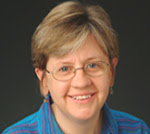Concerns about information overload are not new although in the age of the Internet people may be gaining a greater appreciation for its implications. Yesterday’s Chicago Tribune reported on the results of an Associated Press-Ipsos poll that found 27% of Americans had not read one book in the past year. At this past ALA Annual meeting Eli Nieburger of the Ann Arbor District Library quoted a frightening statistic about the number of people who never read another book after high school: 58%. I tried to track down the source (in a quick Googlish way) and found it at ParaPublishing’s website, which quotes research by Jerrold Jenkins. Now, I have no idea who Jenkins is and I am much more inclined to view the AP statistic as more authoritative. Still, they are both pretty unsettling to a librarian who loves to read.
I believe it was Herbert Simon, the Nobel Prize winning psychologist, who came up with the concept of “satisficing” behavior. Basically the idea when applied to information seeking means that people stop when they find something that is good enough instead of looking for a resource with maximal value. Simon also wrote about the reality that a glut of information results in a lack of attention. Eszter Hargittai (check out her blog) teaches in Communications and Sociology at Northwestern University and has done some fascinating research in this area.
Librarians’ self-perceptions have been so tied to physical books and buildings. We need to question what that means in a world of content that is increasingly online and in multiple formats. Those working in academic libraries have to recognize that classroom instruction is changing and incorporating information technology in ways that are intended to engage students. I’m not just referring to course management systems like Sakai or BlackBoard. Professors are experimenting with using emerging technologies such as blogs, wikis, and podcasts in their classes, tools that many students already are adept at. Is the profession keeping up? If we hold service as a fundamental value of our profession, what are individual librarians doing to keep up with these new expectations?
Thursday, August 23, 2007
Information overload and turning off on reading
Labels:
information_overload,
librarians,
libraries,
Library2.0,
reading
Subscribe to:
Post Comments (Atom)

2 comments:
Mary Alice--
I would even question the AP poll. These two observations appear inherently contradictory, but I can't believe that the implication of the 27% who've not read a book, i.e., 73% have, can possibly be true.
--Flo
This is great info to know.
Post a Comment